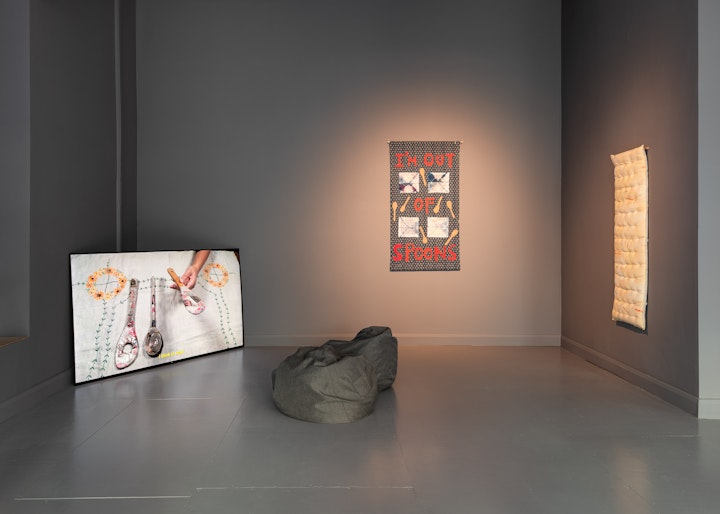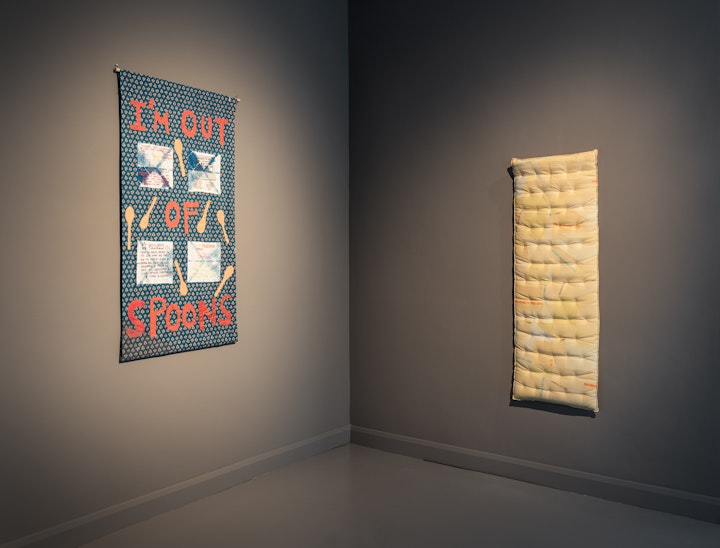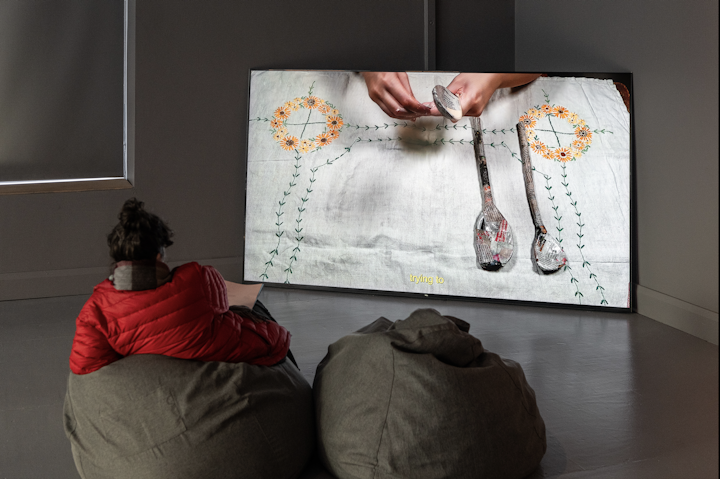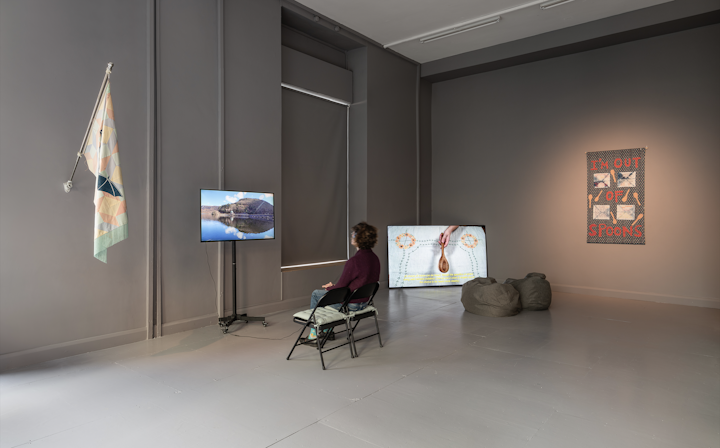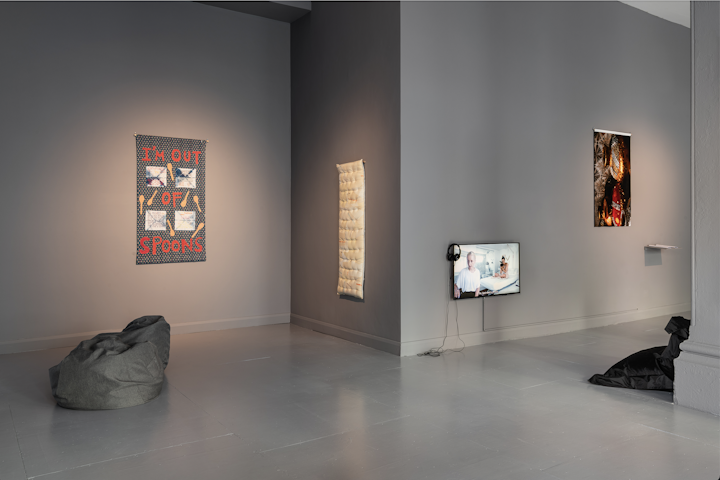Get Well Soon! at Ormston House, Ireland, 2024
Exhibitions
Get Well Soon! at Ormston House, Ireland, 2024
Group exhibition at Ormston House, Limerick, Ireland, November-February 2024. Curated by Lucy Lopez.
Get Well Soon (prologue) is a group exhibition drawing a connection between human and planetary exhaustion. Curated by Lucy Lopez, the exhibition brings together works by Roo Dhissou, Kyla Harris & Lou Macnamara, Rowena Harris, Bint Mbareh, Harun Morrison (with Satpreet Kahlon), Jamila Prowse, Benoît Piéron, Lorenzo Sandoval, and Rehana Zaman.
A prologue for a long-term project, the exhibition hosts works which set intentions for less extractive worlds. Get Well Soon borrows its title from a 2020 text by Johanna Hedva, written in the midst of the first wave of the COVID-19 pandemic. Hedva wrote that we were experiencing what happens ‘when care insists on itself, when the care of others becomes mandatory, when it takes up space and money and labour and energy’ (Hedva, 2020). They chart the revolutionary potential of sickness: ‘a revolution… might look like hundreds of thousands of bodies in bed, organising a rent strike, separating life’s value from capitalist productivity’ (Hedva, 2020). The long-term project Get Well Soon acknowledges a state of sickness: societal, planetary, interpersonal. We are living through a time of planetary burnout, climate emergency, extractivism and exhaustion; of late-stage capitalism and austerity logic; a time where care is in crisis, privatised beyond recognition. Amongst these crises, how can the space of art model new imaginaries and ways of living? How can we work in and of a place of sickness, rather than under the illusion of wellness? How can we build rest, community care and restorative justice into our work?
Get Well Soon (prologue) engages with ideas of pacing: from the engineered flows of waterways, to the way time is experienced—sometimes measured in spoons—for disabled, crip, and chronically ill communities, to the way that routines as personal as daily meals can be imbued with ideas of family and grief. From Rehana Zaman’s exploration of the social currencies and economies of modern agriculture in Arbroath, Scotland, to Lorenzo Sandoval’s narrativizing of ecological degradation in south-eastern Spain, the works exhibited also play witness to the impacts of capitalist and colonial extraction on both our bodies and our environments. Sitting with ideas of sickness, burnout and loss, the exhibition aims to also depict the joys and world-building possibilities of thinking from this perspective.
For those with additional access requirements or who cannot visit the exhibition in person, an audio guide to the exhibition can be found here:
